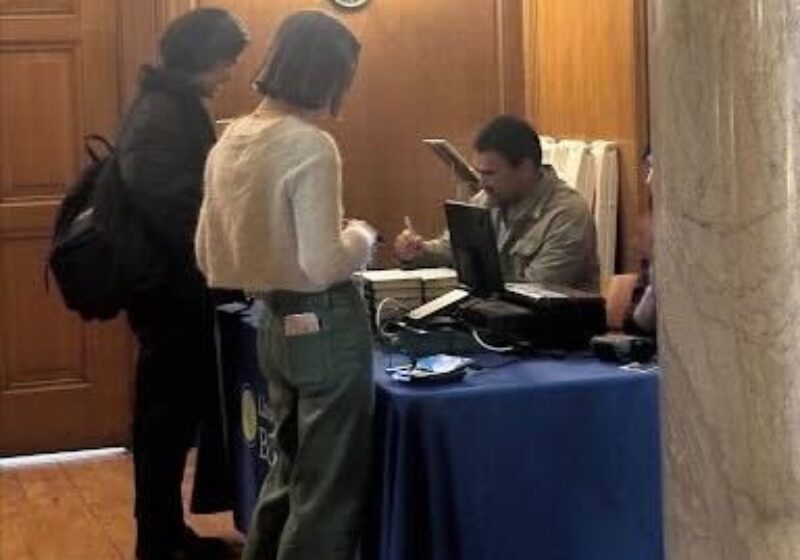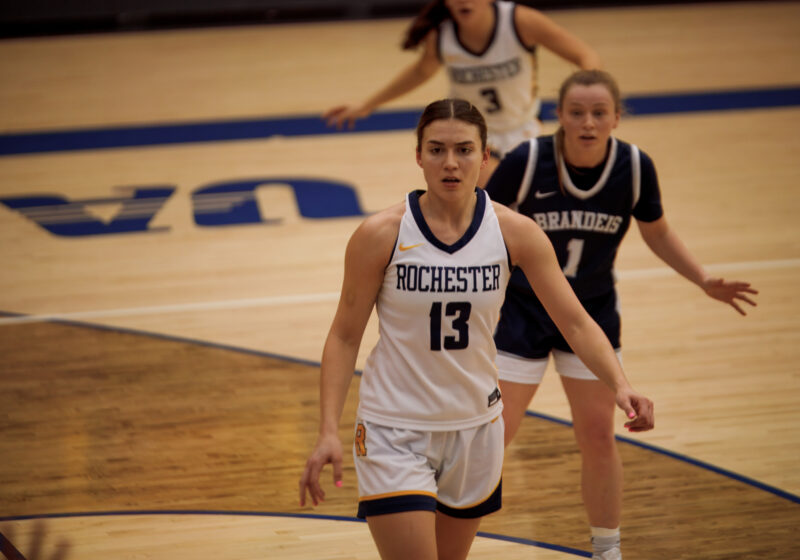Allison Stokes was named the new director of the Interfaith Chapel and the M.K. Gandhi Institute for Nonviolence at UR. Stokes is the founding director of the Women’s Interfaith Institute in Seneca Falls, a non-profit organization whose goal is to empower female spiritually. She also has been a pastor in the United Church of Christ for 26 years.
Stokes has been getting up to speed with learning about the Chapel and the Institute since coming to UR on Oct. 15. She said that prior to her arrival, she was not in search of a new job.
“I was working [in Seneca Falls] and had no intention of going anywhere and I got the announcement about the position opening and it just seemed phenomenal… it seemed like a dream job, and it is,” Stokes said. “I’m really impressed with UR and really happy to be here.”
When asked how her beliefs concerning tolerance and peace were accepted at colleges, Stokes felt that college campuses differed greatly from Seneca Falls, where there was the Interfaith Institute, but also where the prevalence of diversity was much lower.
“I found that college campuses are where you find the diversity, such as international students, who bring a diversity that’s hard to find in more rural communities and towns,” Stokes said.
Members of the College believe that diversity in faith will be well-attended to with the addition of Stokes to the University.
“Allison Stokes has long experience in interfaith ministry that she will build upon in serving the needs of both long-standing and emerging religious groups, and in strengthening interfaith dialogue on campus,” Dean of the College Richard Feldman said. “With her arrival, the College has the opportunity to become a more influential force promoting dialogue, tolerance, and peace in our community and beyond.”
Stokes began her career as a college chaplain after she received the degree of Master of Divinity from Yale University, serving at two different schools prior to becoming a pastor. She marks her arrival at UR as a return to the beginning of her career.
Before coming to UR, Stokes founded the Women’s Interfaith Institute in Seneca Falls in 2002, as well as one in the Berkshires in Massachusetts to encourage women’s leadership. When questioned about the involvement of men in the Institute, she stated that the present time in history requires “extra support” for women’s leadership.
Her religious experience caused her to be involved in the Parliament of World Religions in Cape Town, South Africa in 1999. The Parliament saw nearly 7,000 people from all over the world attend.
“[The Parliament] was wonderful, and it made me want to give my total commitment and my professional life to doing interfaith work,” Stokes said.
The first Parliament of World Religions was held in 1893 in Chicago, Ill. in conjunction with the Chicago World Fair.
“It was sort of the launching of the interfaith movement. Americans who were predominantly Christian had people, for the first time, in large numbers come to Chicago… they met Hindus and Buddhists and people with whom they generally had no experience,” Stokes said.
One hundred years later, in 1993, there was a second Parliament of World Religions, again in Chicago. Stokes was unable to attend but gladly traveled to Cape Town for the third Parliament. Stokes commented that since 1999, there has been a fourth Parliament in Barcelona, Spain.
Stokes related Gandhi to the Parliament through his view of all the different faiths; such was the subject of the Parliament.
“Gandhi himself promoted the respect and faith of many different traditions,” Stokes said. “Even though he was Hindu, he had a daily prayer service where he would use prayers from all the different faith traditions in open air… To me it makes sense to have the person who’s leading the Interfaith Chapel here also leading the Gandhi Institute because that’s what [Gandhi] was about.”
Stokes sees her new position as the director of the Gandhi Institute as one that will help unite people.
“In my experience, there are many people who want to learn more about Gandhi, want to carry through with his teachings, and I see my role is to help facilitate that, to bring the people together who want to do that… UR has phenomenal resources that they are offering to host this institute here [that] allows students and faculty both to be involved in a wonderful undertaking,” she said.
In terms of the Interfaith Chapel, Stokes hopes to be a “spokesperson” of sorts for the chapel – to help compile a team and to have the chaplains working together and interacting more closely than they have in recent years. The Chapel has been without a director for years.
“We’re hoping to make some changes that would help reflect the diversity that’s here, to make the building work better for what goes on here,” Stokes said.
Stokes says she is inspired to be working at UR with Gandhi’s grandson, Arun Gandhi, furthering his grandfather’s cause.
“That image of the mountain with all the different paths from the different religions going to the top and to love is really kind of an image of what he said – that love, compassion is key,” she said.
Halusic is a member of the class of 2010.



